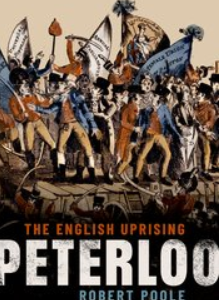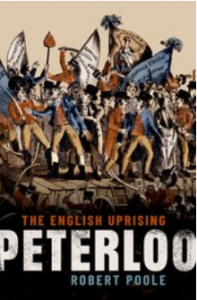
Peterloo: When British state turned on its people

The English uprising of 1819 in Manchester when the English pro-democracy movement met its waterloo. An unforgettable portrait of Regency Manchester, its corruption, its riots, its strikes and its attempted uprisings.
The Peterloo Massacre by on August 16, 2019 will mark 200th anniversary of a moment tens of thousands of people made their way on foot to Manchester in order to make their voices heard. They campaigned for democracy and equality and their treatment by the state gave their gathering a name that has endured August 16 as simply Peterloo.
In Peterloo: The English Uprising by Robert Poole, the story starts in 1815, the end of Napoleonic wars at the Battle of Waterloo, from which the massacre took its name.
In the wake of the war which prompted a mass demobilisation of soldiers and widespread economic downturn where men and women were paid a pittance to operate dangerous machinery in the cotton mills of newly industrialised north which had no representation in the parliament. Manchester did not return a single MP, between1817 and 1819 working-class leaders made multiple attempts to improve their conditions but were thwarted by a network of government spies and informants.
The organisers of the August 16 meeting persuaded Hnery “orator” Hunt, the leader of the national parliamentary reform movement to address the crowd and took every precaution to ensure the event passed off peacefully. However, the organisers were unaware that the Manchester magistrates had ordered St Peter’s Field to be cleared of stones so that the crowd would have no opportunity to defend themselves, and within minutes after Hunt started speaking a mounted militia appeared and began cutting and trampling the crowd. Women, children and elderly were attacked by armed men on horseback indiscriminately. 22 people died, including a toddler thrown from his mother’s arms a soldiers galloped through the streets injuring thousands and imprisoned the leaders of the meeting. No soldiers were charged, no one responsible for ordering armed men to the field was held to account.
Peterloo: The English Uprising by Robert Poole Oxford University Press £25, 480 pages.
